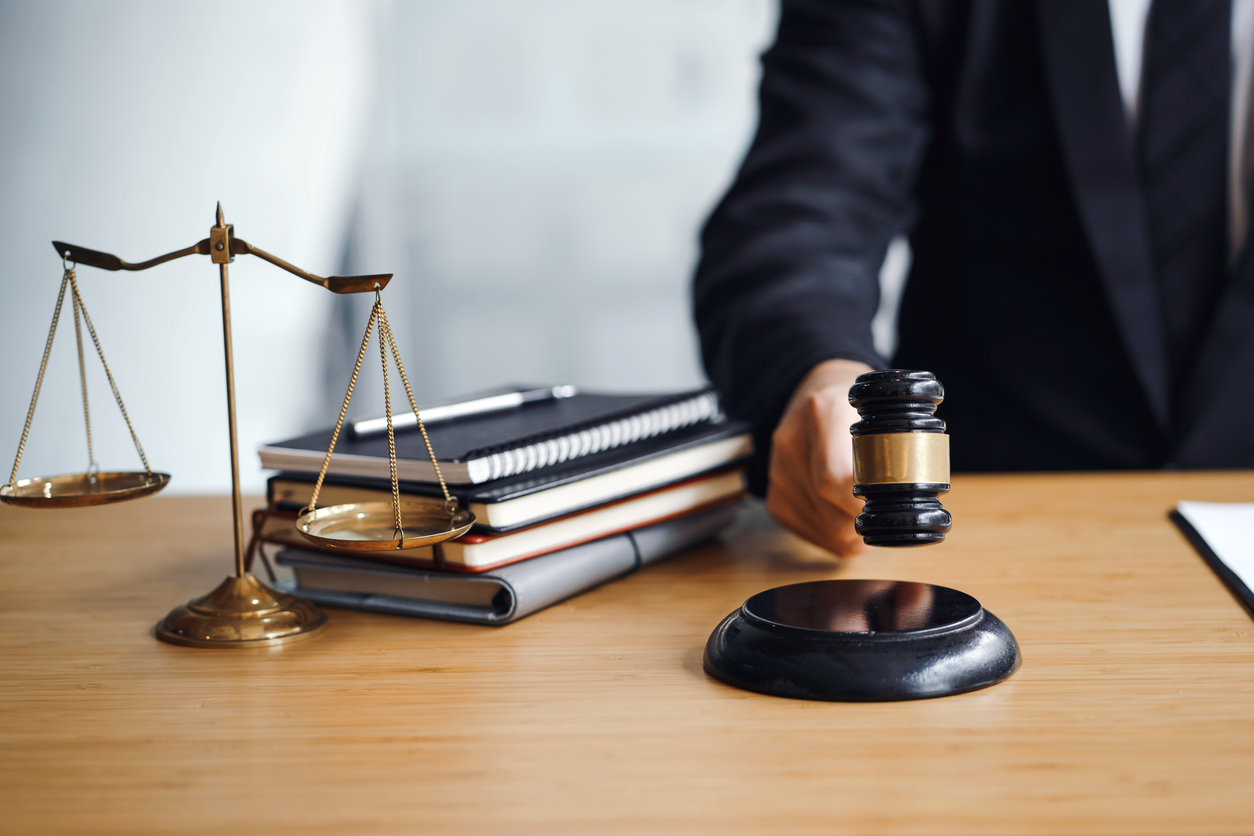Looking for a lawyer to help you get money for being hurt? Our team will help you with your injury case, making sure you get what you deserve. We will fight for you and make sure you are taken care of. Let us help you with the legal stuff so you can focus on getting better. Trust us to help you get justice and money for your injuries.
Understanding Personal Injury Law
Qualifications Needed
To become a personal injury lawyer, one must first acquire the necessary qualifications to practice law in their jurisdiction. This involves completing law school and passing the bar exam. In many states, individuals are required to pass a written ethics examination to ensure they understand and uphold ethical standards within the legal profession. To stay current with legal developments, personal injury attorneys must participate in Continuing Legal Education (CLE) classes regularly.
Practice Areas
Personal injury lawyers typically concentrate their legal practice on specific areas within personal injury law. They may choose to specialize in fields such as medical malpractice to develop expertise in handling complex cases. These legal professionals often handle a variety of cases, including slip and fall accidents, traffic collisions, workplace injuries, and more. By focusing on these specific areas, personal injury attorneys can better serve their client’s needs and provide specialized assistance.
- Pros:
- Specialization allows for in-depth knowledge and expertise.
- Ability to provide focused assistance tailored to specific types of personal injury cases.
- Cons:
- The limited scope of practice compared to general practice attorneys.
- May face challenges when dealing with cases outside their specialized area.
Ethical Practices
Personal injury lawyers have a professional responsibility to help plaintiffs obtain just compensation for their injuries and losses. This entails advocating for their client’s rights and ensuring they receive fair treatment under the law. Upholding ethical standards is crucial in maintaining the integrity of the legal profession. These attorneys must adhere to strict rules of ethics that govern the attorney-client relationship, ensuring confidentiality and trust between both parties. State bar associations establish codes of conduct that personal injury attorneys must follow to maintain professionalism and ethical practices in their legal work.

Choosing the Right Lawyer
Credentials Check
When choosing a lawyer, it’s crucial to verify their qualifications and credentials. Make sure the lawyer is legally allowed to practice in your area. Confirm if they have passed all necessary ethics exams to ensure their professionalism.
Experience Matters
Evaluate a lawyer’s experience in handling personal injury cases. Look into their track record of success in similar situations. Assess their expertise in negotiating settlements for clients seeking compensation.
Client Testimonials
Reviewing client testimonials can provide valuable insights into a lawyer’s reputation. Take note of feedback from previous clients about their overall experience. Look for testimonials that emphasize successful outcomes in personal injury cases.
The Lawyer-Client Relationship
Building Trust
Establish trust by openly communicating your needs and concerns with the attorney. Allow the lawyer to demonstrate their expertise and commitment to your case. Trust is essential for a successful partnership.
- Openly discuss all aspects of your case with the attorney.
- Relying on the lawyer’s professionalism in handling legal matters effectively.
- Develop a solid foundation for the attorney-client relationship through mutual trust.
Effective Communication
Maintain clear and effective communication channels with your lawyer to ensure a smooth legal process. Express your expectations and worries openly, fostering a transparent working relationship. Stay updated on case developments through regular communication.
- Maintain open lines of communication to address any queries or uncertainties.
- Clearly articulate your expectations and concerns to the lawyer.
- Keep yourself informed about the progress of your case by receiving regular updates.
Navigating the Legal Process

Case Preparation
When preparing for your personal injury case, thoroughly gather all relevant documents and evidence. Collaborate closely with your lawyer to strategize effectively. Ensure you have a solid plan in place to support your claim.
- Gather medical records, accident reports, and any other documentation.
- Secure witness statements and expert opinions to strengthen your case.
- Your lawyer will guide you on the necessary steps and preparations for court proceedings.
Negotiation Tactics
Employ effective negotiation tactics when aiming for a favorable settlement. Your lawyer will assist you in navigating this process. Together, devise strategies to maximize your chances of reaching a satisfactory outcome.
- Engage in open communication with your lawyer to understand negotiation strategies.
- Be prepared to counteroffer and stand firm on crucial points during negotiations.
- Utilize your lawyer’s expertise to handle discussions with insurance companies professionally.
Types of Compensation
Medical Expenses
When you’re injured, compensation for medical expenses is crucial. Include all costs in your claim for reimbursement. Seek fair compensation for both past and future medical treatments.
Lost Wages
If your injury led to lost wages, ensure they are part of your compensation claim. Calculate the total income lost due to the injury and provide supporting documentation.
Pain and Suffering
Don’t overlook compensation for pain and suffering from the injury. Document both physical and emotional impacts on your life. Ensure these damages are included in your overall compensation claim.
Maximizing Compensation
Strategic Approaches
Develop strategic approaches to strengthen your personal injury case. Collaborate closely with your lawyer to gather evidence and build a strong case. Utilize expert witnesses or medical professionals to support your claims effectively.
Create a comprehensive legal strategy with your lawyer. Outline the details of your accident, injuries, and damages. Ensure all necessary documents are collected and organized for presentation in court.
Implement tactics to maximize your chances of a successful outcome. Stay proactive in communicating with your lawyer and providing updates on any new developments. Follow their advice diligently to enhance the strength of your case.
Avoiding Common Pitfalls
Be aware of common pitfalls in personal injury cases. Do not delay seeking legal representation after an accident occurs. Waiting too long can lead to missed deadlines for filing claims.
Avoid mistakes that could jeopardize your claim. Refrain from discussing your case on social media platforms as it can be used against you by the opposing party. Maintain open communication with your lawyer to address any concerns promptly.
Seek guidance from your lawyer to navigate potential pitfalls. Your attorney can provide valuable insights into the legal process and help you avoid making critical errors that may harm your case’s success.

Ethical Considerations in Personal Injury Cases
Importance of Ethics
Ethics play a crucial role in the legal profession, including personal injury cases. Upholding ethical standards ensures fairness and integrity in the legal process. It is essential to prioritize ethical practices to maintain trust and credibility with clients and the legal system. When seeking a personal injury lawyer, consider their commitment to ethical conduct as a fundamental aspect of their representation.
Working with a lawyer who values ethics means that they will always act in your best interests. Ethical lawyers prioritize honesty, transparency, and confidentiality in their interactions with clients. By adhering to ethical guidelines, lawyers demonstrate respect for the law and their clients’ rights. This commitment fosters a strong attorney-client relationship built on trust and mutual respect.
Professional Conduct
Professionalism is a cornerstone of effective legal representation in personal injury cases. Your lawyer should exhibit professionalism at all times, from initial consultations to courtroom proceedings. Expect your lawyer to communicate, respond promptly to your inquiries, and provide updates on case developments. A professional lawyer will also maintain confidentiality regarding your case details and approach all interactions with respect and courtesy.
When engaging a personal injury lawyer, ensure they adhere to high standards of professional behavior. Professional conduct encompasses various aspects of legal practice, such as punctuality, preparedness for meetings and court appearances, and respectful communication with all parties involved in the case. By holding your lawyer accountable for their professional conduct, you can ensure that your case progresses smoothly and effectively.
Role of Professional Organizations
Membership Benefits
Joining professional legal associations offers numerous benefits for personal injury lawyers. By becoming a member, you gain access to a wealth of resources that can enhance your legal practice. These resources include legal research materials, case studies, and educational seminars.
Membership in these organizations also provides valuable networking opportunities. Through networking events and conferences, you can connect with other legal professionals in the field. Building relationships with peers can lead to referrals, collaborations, and mentorship opportunities.
Staying updated on industry trends and best practices is crucial for personal injury lawyers. Professional associations offer continuous education programs and workshops to ensure members are well-informed about changes in laws and regulations. This knowledge helps lawyers provide the best representation for their clients.
Networking Opportunities
Engaging in networking opportunities within the legal community is essential for personal injury lawyers. By attending association events, you can meet potential clients, partners, and experts in the field. These connections can lead to new business opportunities and collaborations.
Building a strong network of legal professionals is beneficial for personal injury lawyers looking to grow their practice. By establishing relationships with other lawyers, you can exchange insights, seek advice on challenging cases, and refer clients when needed. Collaborating with peers can also enhance your reputation in the industry.
Attending events and conferences organized by professional associations allows personal injury lawyers to expand their reach and visibility within the legal community. By participating in panel discussions or speaking engagements, lawyers can showcase their expertise and establish themselves as thought leaders in the field.
Addressing Criticisms of Personal Injury Law
Common Misconceptions
Personal injury lawyers are often misunderstood. Misconceptions about their fees and case outcomes are prevalent. Clients may not fully understand their roles and responsibilities.
- Legal fees for personal injury cases are typically based on a contingency fee arrangement.
- Contrary to popular belief, most personal injury cases are resolved through settlements.
- Personal injury lawyers play a crucial role in advocating for clients’ rights and seeking fair compensation.
The Reality of Legal Practice
To navigate the complexities of personal injury law, it’s essential to grasp the realities of legal practice. Be prepared for the challenges that may arise during your case.
- Legal proceedings can be lengthy and involve various legal documents and processes.
- Collaboration with your lawyer is key to building a strong case and presenting compelling arguments.
- Understanding the nuances of personal injury law empowers clients to actively participate in their legal journey.
Final Remarks
You’ve now gained valuable insights into personal injury law, choosing the right lawyer, navigating the legal process, and maximizing compensation. Remember, ethical considerations play a crucial role in ensuring fair outcomes. Professional organizations can guide you through any criticisms you may encounter. By understanding these aspects, you’re better equipped to handle your personal injury case effectively.
Take charge of your situation by applying the knowledge you’ve acquired. Seek a reputable lawyer who aligns with your needs and values. Stay informed about your rights and the compensation you deserve. With the right approach and support, you can navigate the complexities of personal injury law successfully.
Frequently Asked Questions
What is personal injury law?
Personal injury law allows individuals who have been harmed by the negligence of others to seek legal recourse and compensation for their injuries.
How do I choose the right personal injury lawyer?
When selecting a personal injury lawyer, consider their experience, track record of success, specialization in personal injury cases, communication style, and client reviews to ensure they are the best fit for your case.
What types of compensation can be sought in a personal injury case?
Compensation in a personal injury case may include medical expenses, lost wages, pain and suffering, emotional distress, loss of consortium, and punitive damages in some cases.
How can I maximize compensation in my personal injury case?
To maximize compensation in a personal injury case, document all evidence related to the incident, follow your healthcare provider’s treatment plan, keep detailed records of expenses and losses incurred due to the injury, and work closely with your lawyer to build a strong case.
Are there ethical considerations involved in personal injury cases?
Yes, ethical considerations play a crucial role in personal injury cases. Lawyers must adhere to professional ethics codes, maintain client confidentiality, avoid conflicts of interest, provide competent representation, and act in the best interests of their clients throughout the legal process.






